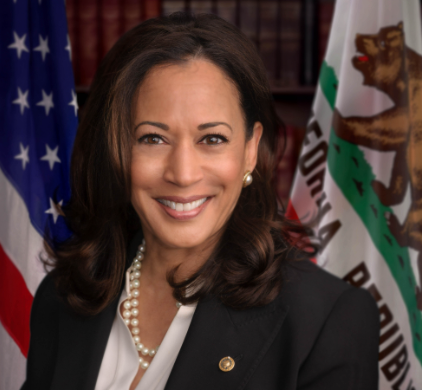$NWS $TWTR $GOOGL
#Iowa #KamalaHarris #DonaldTrump #Election2024 #RedState #ShockPoll #PoliticalMarkets #Democrats #Republicans #PollingData #MarketImpact #StockMarket
Kamala Harris has shocked political pundits and market analysts alike with her newly found lead in Iowa, a state that has historically skewed Republican. In a fresh poll from a well-regarded survey group, Harris is now leading former President Donald Trump, a surprising turn of events in a state that Trump won by 10 points during the 2020 election. This shift in political sentiment could have broader implications beyond politics, possibly impacting markets as investor sentiment shifts in alignment with potential policy direction changes.
Iowa, although not known for its large electoral vote count, has often been viewed as a bellwether for political strategy in middle America. The state is predominantly rural, with industrial agriculture playing a considerable economic role. If Harris—the current Vice President—can effectively win over voters in this kind of traditionally conservative territory, it could signal a more significant shift in voter attitudes nationwide, particularly in swing states with similar economic foundations. Such a trend could affect industries that are largely dependent on Republican policies, such as fossil fuels, farming, and regulatory frameworks. On the flip side, tech and green energy companies could receive a boost, making stocks such as $GOOGL (Alphabet), which has been advocating for more environmentally friendly policies, potentially more attractive.
From a market perspective, early leads in states like Iowa can play a critical role in forecasting sector performance. Political analysts often translate polling data across different markets, and this initial shakeup might have an early ripple effect on how sectors will evolve over time should Democrats take control. Particularly, investment in renewable energy and tech stocks may get an early boost, as Democrats tend to favor these sectors. Companies in these industries could see an uptick in institutional investment due to anticipation of more favorable regulations coming their way. Additionally, the risk premium in traditionally Republican-heavy sectors, such as defense and fossil fuels, may widen.
Beyond domestic considerations, the shift in polling in traditionally Republican states like Iowa could also introduce volatility in international trade outlooks, particularly with China. During Trump’s presidency, key policies included tariffs and trade tensions, particularly involving agriculture—a staple of Iowa’s economy. A Harris victory could potentially reverse some of these policies or negotiate different terms, potentially reducing uncertainty in global supply chains. Investors may begin to adjust their portfolios now, favoring assets aligned with reduced trade tensions and increased renewable energy opportunities, given the early signals from this unexpected political shift.











Comments are closed.